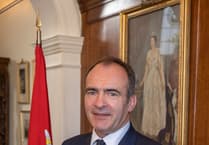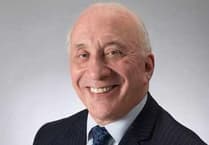Members of the House of Keys will be able to choose if they wish to sit in on prayers at the start of each sitting from now on.
This was an amendment by Sarah Maltby to a motion presented by Garff MHK Daphne Caine, in her capacity as deputy speaker of the House of Keys, to the house.
It moved that prayers be removed from the beginning of each House of Keys sitting in favour of a House of Keys Smooinaghtyn, or thought for the day, where representatives from different faiths could be invited in to give a three-minute talk, or, if not, there would be a moment of silence.
Mrs Maltby’s amendment stated: ’As a matter of principle every member should be free to participate in prayers or not according to their individual conscience; and the Management and Members’ Standards Committee should consider and report on how to give effect to this principle.’
A division was called after a vote on the original motion. It concluded with 20 members for and three against the proposed amendment.
Currently, every session of Keys begins with a prayer led by the house’s chaplain but last year Archdeacon Andrew Brown retired from his position.
Speaker of the House of Keys Juan Watterson sent a letter to all members on October 12 calling for nominations for the role of chaplain. Mrs Caine said he also indicated in the letter he would ’welcome alternatives regarding prayer’.
’We have had a chaplain for 158 years but this time no nominations were forthcoming,’ she said. ’The nine respondents who made a submission all recommended a reform of current tradition of prayer. Many questioned the appropriateness of this tradition in the modern age.
’One member remarked that the current structured prayers left some members feeling uncomfortable.’
’All together the responses received advocated a more secular, inclusive procedure.’
’If we don’t have prayers, do we still need a chaplain’, she asked the house. ’Chaplaincy exists for reasons of pastoral care, the committee were mindful of the need to preserve this valuable position, notwithstanding a future without a chaplain.’
She compared the Isle of Man’s practices to that of other parliaments.
The Northern Ireland assembly offers opportunity for silent reflection, the Welsh assembly has no such rituals, and Scottish parliament draws contributors from across Scotland to represent a range of religious beliefs in a time for reflection.
Mrs Caine said: ’Tradition is important but it is equally important to ensure this body meets the needs of its members as well as the wider community.
’When we pose a tradition without relevance, we risk alienating people when we compel them to abide by it.’
Mrs Caine suggested prayer be removed from April for a trial period of 12 months. Mrs Maltby then submitted her amendment that removed the requirement to appoint a chaplain but kept prayers.
Rob Callister, MHK for Onchan, said he would not support the recommendations either.
He said he was ’all for the modernisation and reform’ of the house but the changes ’must reflect our society’.
According to the 2021 census data, the island is ’still very much a Christian society’, with 51% saying they are Christian. The MHK added that constituents wouldn’t see any value in the members arguing about what to do before a sitting.
Douglas North MHK David Ashford said that though he’s not religious he respects tradition.
’I’ve had more people contact me over this than the Island Plan!,’ he said. ’It’s a system designed to please everyone but will please no one.’
He pointed out that the prayer used in Keys is Psalm 67 from the King James Bible which is a multi-faith prayer.
Mr Ashford said six people had contacted him in support, with 65 against.
He felt it was a decision that shouldn’t be made, adding: ’This institution of over 1,000 years of history does not belong to us, we are just passing through, Tynwald belongs to the Manx people. Tearing up traditions with five days notice is not the way I believe a historic parliament should do things.’
Jane Poole-Wilson explained her conflict on the matter, stating she is ’a person of faith’ and has ’actively participated in prayers’.
She said she understood her faith was not shared by all members and that led her to feel the removal of prayers was ’not a loss but a potential opportunity to gain’.
She said: ’Although the current practice of Christian faith speaks to my faith, I would prefer to embrace the diversity of belief.’
Meanwhile, Lawrie Hooper felt the logic in Mrs Maltby’s amendment was ’flawed’, saying: ’I’m disturbed by the suggestion that members can leave the chamber if they’re uncomfortable. This is like saying one group is slightly more valued and that feels to be wrong.’
Tim Crookall said he didn’t mind which way it went, adding: ’I don’t mind a bit of peace and quiet.’
Chief Minister Alfred Cannan questioned what would become of other religious services such as Tynwald Day if this change were made.
He said: ’There’s a difference between the word reform and abandonment and I don’t think the House of Keys has had time to reflect on that.’




